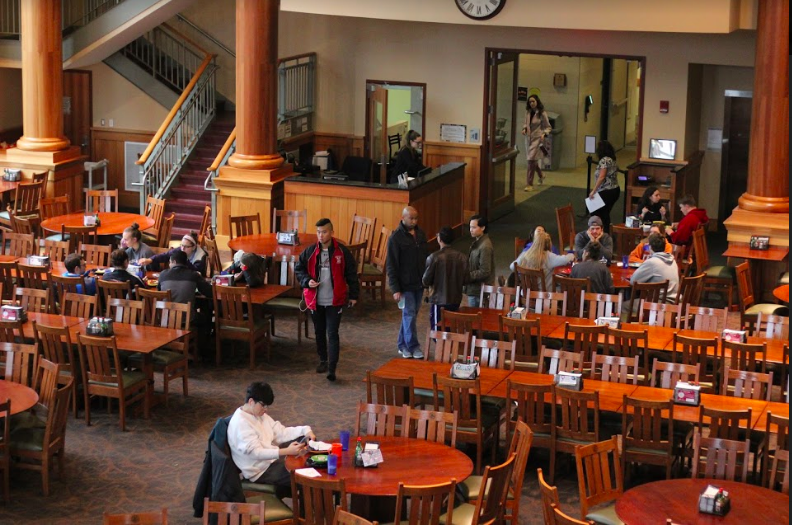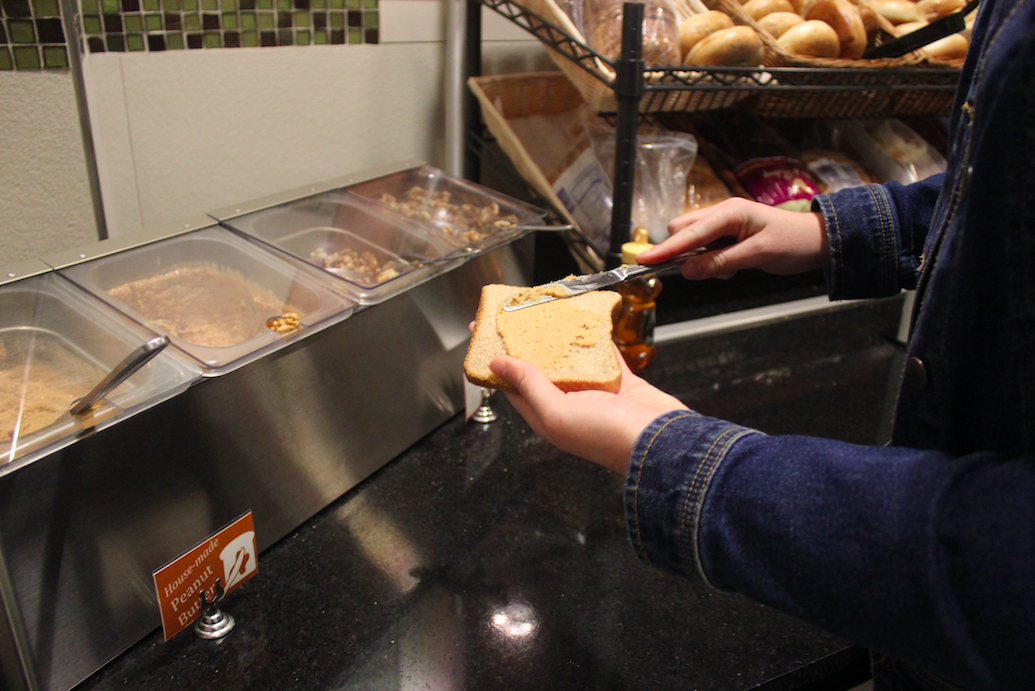On Oct. 5, before Fall Break, Muhlenberg Dining Services announced that they would be conducting a ‘self-audit’ of all foods containing peanuts and tree nuts. Over the course of this audit, dining services removed all food items containing those allergens from the Wood Dining Commons as well as from the General’s Quarters, Mule Express, LSC Café and Java Joe.
After assessing each item and its ingredients, the removed foods were returned to the menu on an item-by-item basis. This audit comes in response to a mislabeling incident that led to a student experiencing an allergic reaction.
“Approximately 15 million people in the United States have food allergies.”
According to FARE (Food Allergy Research & Education), “Approximately 15 million people in the United States have food allergies.” With food allergies affecting so many people across the country, it is crucial that food services at Muhlenberg take these allergies into consideration.
Because college students have limited access to food off campus, the Wood Dining Commons and other on-campus eateries are central to many students’ daily lives. While the brief removal of peanut butter or granola from the dining hall may have been an annoyance to students without allergies, for students with food allergies, knowing the ingredients in their foods is an everyday concern, and the audit could be of great benefit to them.
John Pasquarello, general manager of dining services, and Jon Middleton, director of culinary pperations, discussed their decision to conduct the self-audit and the changes that have come from it. They explained that the audit began strategically over Fall Break, when many students leave campus, so that the menu changes would not disturb the majority of customers.

Besides evaluating current menu items and ingredients, during the audit, 50 of Dining Services’ 180 employees underwent training by the outside company AllerTrain, who describes their course as “prepare[ing] dining staff to cater to students [with food allergies’] needs, teach them how to recognize symptoms of an allergic reaction and how to implement proper procedures in their dining hall that will help prevent these reactions from occurring.”
Additionally, according to Pasquarello and Middleton, Dining Services plans to update their signage on individual items and on the overhead TV screens, as well as being more detailed in the disclosure of allergens. They have begun preparing products containing nuts at the end of the day, as well as strategically placing items with nuts away from other foods in an effort to prevent cross-contamination. An example of these changes is the re-introduction of the dining hall’s much-loved granola, now kept in a closed container to prevent possible cross-contamination. They will also be reducing the overall use of nuts on their menu in general, as well as buying less baked goods with nuts from outside bakeries.
Despite these changes, many of their most popular baked goods, the homemade peanut butter and other nut toppings for oatmeal and salads, will remain on the menu. Although dining services have become more transparent about their ingredients, Pasquarello and Middleton encourage students with food allergies to contact them so that they can discuss what foods are safe for them to eat, and stress that students with food allergies must register their dietary needs with Disability Services.
A topic of concern for both Pasquarello and Middleton is the labelling of items bought from outside retailers. The student whose life-threatening reaction initially led to the audit had eaten a mislabeled baked good that did not disclose that the item contained nuts.
“I’d just like there to be little labels that say what ingredients are in it so I know when I get it,” says the student, who prefers to remain anonymous.
“I’d just like there to be little labels that say what ingredients are in it so I know when I get it,”
It is evident that in Dining Services’ large operations, some details like labelling and ingredient disclosure may have fallen through the cracks; however, Pasquarello and Middleton stress that this is one of the many issues they have focused on during the audit.
Extra labeling, detailed ingredients and designated prep spaces, like those for customers with gluten allergies, are all important steps for improving many students’ use of Muhlenberg’s dining hall. Dining Services’ self-audit demonstrates the necessary precautions being taken in order to maintain the safety and well-being of many of their customers.
Cover photo courtesy of Cole Geissler
Laura is a sophomore Media and Communication student in the Pre Law program. In addition to being News Editor at the Weekly, she is a DJ at Muhlenberg's radio station WMUH.






















